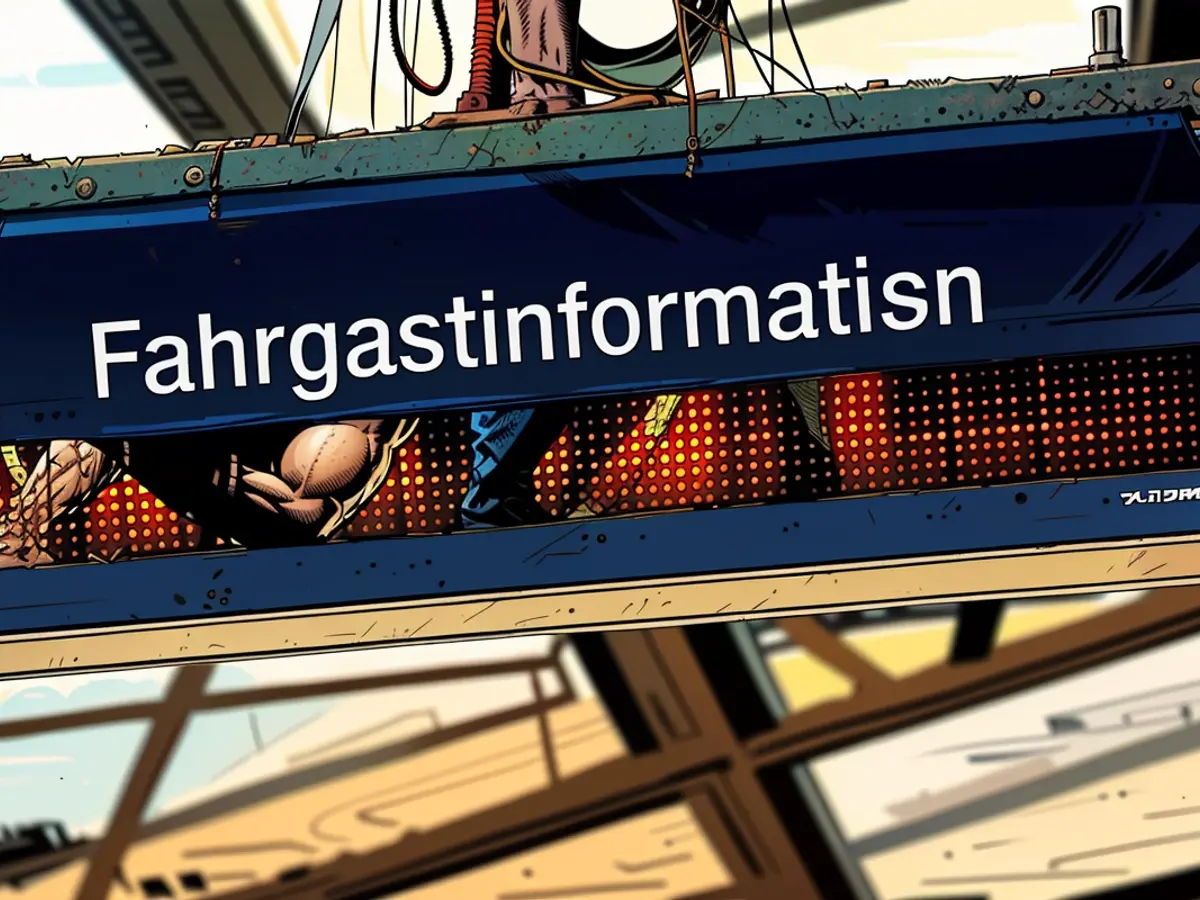Strikes - FDP: Stricter strike rules for critical infrastructure
The FDP faction in the German Bundestag aims to limit the right to strike in industries of the so-called critical infrastructure. According to a position paper obtained by the German Press Agency (dpa), reported earlier by the "Süddeutsche Zeitung," the Liberals are demanding a series of legal requirements for unions in relation to "transport and traffic, healthcare and social services, childcare facilities, energy supply, fire and civil protection, and waste disposal sectors."
Strikes should in the future be announced at least three days in advance. A minimum operational level of 50% must be maintained during a notified strike. Warning strikes may not last more than four hours. A mediation attempt should be mandatory as soon as either the employers or unions request it. These rules can be changed in collective bargaining agreements. Unions, SPD, and Greens have reportedly rejected the FDP proposal, according to the "Süddeutsche Zeitung."
"Strike consequences call for a rethink"
"The consequences of the wage dispute between the Locomotive Engineers' Union (GDL) and German Railways, as well as the strikes in other sectors of critical infrastructure, affect uninvolved third parties and society as a whole, necessitating a rethink," the position paper states. The strikes reached a scale that raised questions about proportionality.
The right to strike as a means of labor conflict is indeed enshrined in the Basic Law. However, there are no legal regulations on how such a labor conflict should be conducted. The goal should be to uphold the right to strike while minimizing the impact on the population. It is necessary to consider the interests of unaffected third parties appropriately and ensure the proportionality of strikes. Therefore, the legislative space should be utilized.
FDP parliamentarian Pascal Kober emphasized that the right to strike is a high and valuable good within the framework of tariff autonomy. "But when critical infrastructure is affected, proportionality must be ensured." His fellow FDP parliamentarian Reinhard Houben added: "The excessive strikes at the railway have shown that we need framework conditions for labor disputes in the critical infrastructure sector." Of course, the tariff parties must find their own regulations. "If that doesn't happen, then the law should provide guidelines."
- The FDP in Germany's Bundestag advocates for restricting the right to strike in critical infrastructure sectors, as reported by the German Press Agency and later detailed by SZ.
- According to a position paper, the Liberals propose legal requirements for unions in sectors such as transportation, healthcare, and energy supply.
- These requirements include advance notice of strikes, maintaining a minimum operational level, and limited duration for warning strikes.
- However, the FDP's proposal to limit strikes has been rejected by the SPD, Greens, and the train drivers' union GDL.
- Strikes in critical infrastructure, like those of the GDL and German Railways, have large-scale consequences affecting unaffiliated third parties and society.
- The FDP parliamentarian Pascal Kober emphasizes the importance of the right to strike but argues for proportionality, especially when critical infrastructure is impacted.
- Reinhard Houben, another FDP parliamentarian, believes excess strikes in critical sectors require framework conditions for labor disputes.
- If the tariff parties fail to establish their own regulations, Houben suggests that the law should provide guidelines to ensure proportionality in strikes.








